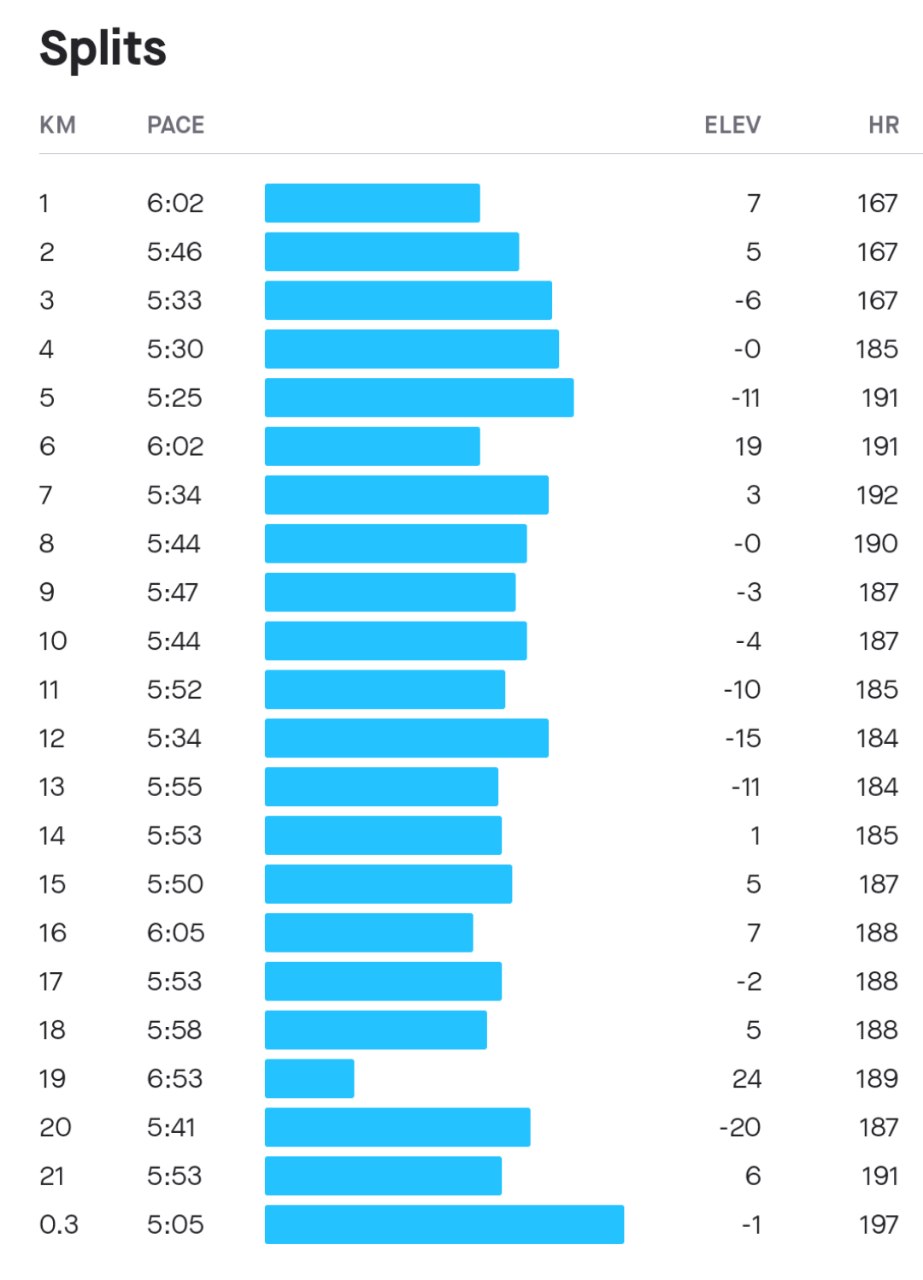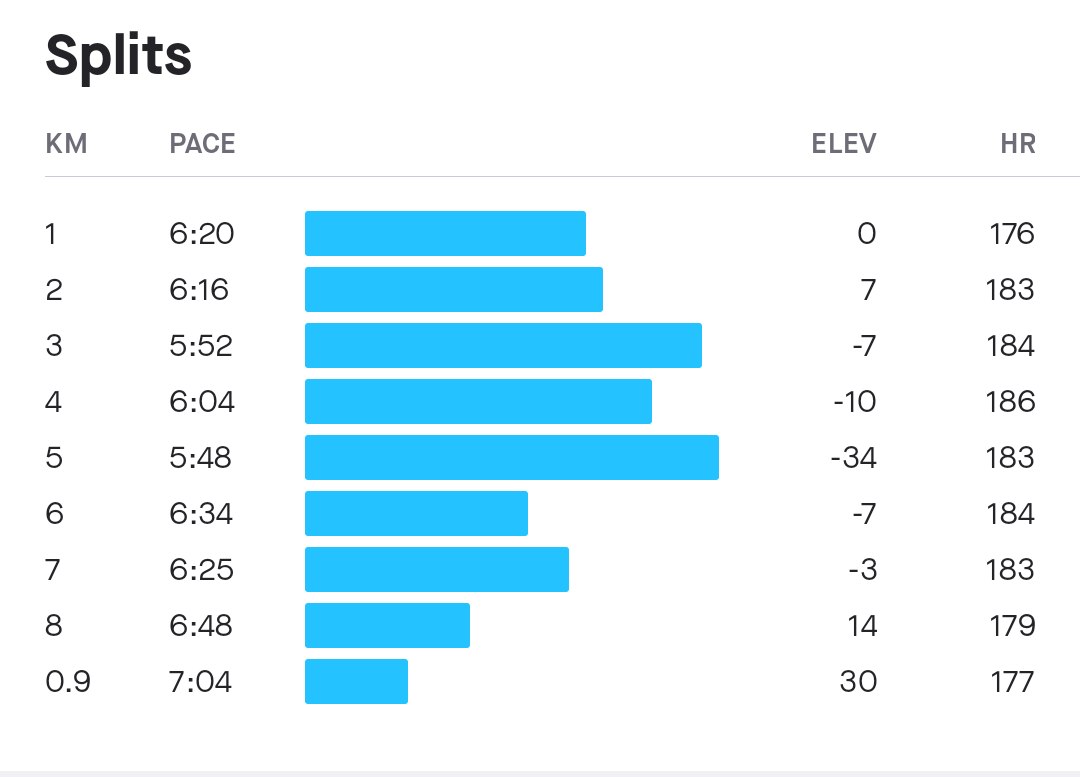Dedicated to all those who like squash over running because running is hard
I've been running for quite a while and couldn't help but notice that a lot of people who tried running for the first time after their first 'jogging' looked like this:

Figure 1: POV: "I'm fine, mate, let's keep running, just give me a sec to catch a breath"
Which has been upsetting me for a long time. I cannot watch people torturing their body any longer, so here ya go:
How to complete 4km run without experiencing any pain (likely)?
If you want to try yourself in running, then it's pretty likely that you're gonna do that in spring/summer/autumn. That means that your equipment list will be short:
- running shoes
- shorts/tights
- socks
- t-shirt (top for girls)
- watches with a cardio sensor
Yes, that's what you wear when it's +5'C and above.🙃
Running shoes
Running shoes can be any pair of sneakers you wear. The best option is shoes with some foam near the heel and breathable mesh, but for such a short run, the latter is optional.

Figure 2: Approximate grade for running shoes
Shorts
Totally any. The stretchier they are, the better. If it's below 10'C use running tights or pants (god forbid jeans).
Socks
At this stage it doesn't matter, but if there's an option - use synthetic ones.
T-shirt
Synthetic one. Period. The worst thing about running in summer is that it's hot, damn hot. When your body experiences heat, it sweats, and by vaporising sweat it cools. But. The cotton clothing you most likely wear daily absorbs sweat and blocks the ventilation of the body, which causes you to sweat more because the excessive heat cannot be released by transitioning the sweat to vapour. That makes your body temperature skyrocket as your heart pumps faster to transition more blood closer to the skin.
And now we slowly came to undoubtfully the most important and the most neglected thing in the running industry. Some people unintentionally don't pay attention to it, due to a lack of knowledge, some are genuinely concerned that they are more than that, but I think it sure is a №1 metric for monitoring your running performance — the heart rate.
Heart rate
Heart rate often mentioned and measured in the running world as BPM (beats per minute) is what you should watch and monitor very closely when you run. There's some theory behind it: Calculate your approximate max heart rate: 220 - your age. For example, assuming you're 25y.o., your limit is 195.
Then your zones are:
| 1. | Warmup | 50-60% | 98-117bpm |
| 2. | Endurance | 60-70% | 117-137bpm |
| 3. | Tempo | 70-80% | 137-156bpm |
| 4. | Intense | 80-90% | 156-176bpm |
| 5. | VO2 Max | 90-100% | 176-195bpm |
The key to getting pleasure from running is to stay within the 1-2 zones. The 3rd is also acceptable, but I strongly discourage you from going into the 4+ zones. These are taboo for any beginner and won't help you progress or have fun while running.
If you've never tried running before, you might think, "oh, okay, no problem, I'll be running in the 2nd zone if needed". Unfortunately, it's not that simple. The thing is that in the 2nd zone you breathe exclusively aerobically, meaning that there's enough air during this kind of respiration for all your energy converting processes. And this doesn't stress your body a lot, cause that's how you usually breathe. That in turn gives you a feeling that you're very far from your running speed limit (and that's true), but don't let this feeling fool you. Check on your watches with a cardio sensor often and trust me, you'll progress in no time[citation needed].
Resources
After you can run ~11km per week, get more appropriate equipment to avoid injuries and explore other kinds of workouts to run faster and longer. But remember, running first should be fun, and only then fast and long.
The end.
Important note
Now that you know everything for the successful first run, we need to have a serious talk. I've been into running for quite a while and saw a lot of crazy people, some of them saner than the others, some are total daredevils. But before you join this madness, I want to emphasise how important it is to stay within the 1-3 zones at the beginning of your path even if someone proposes you run faster for company.


Figure 3: Heart rate of random people I met on a training. It's so high that just looking at it makes me dizzy.
Many people I know and I've been training with don't just not train in their endurance zones but train almost exclusively in the intense-VO2 max zones. And the truth is that you don't progress if you train exclusively in high zones. You'll run longer and faster, but you'll only use your anaerobic breathing. The most important thing is that a high heart rate is in no way good for your heart, and running with it doesn't bring any pleasure. The key to getting pleasure is to train your body to burn fat and breathe aerobically as much as possible. And this is achieved by running in low zones.
I want to inspire you a bit and show you something. So here are my two half-marathon (21.075km) races which took place in a month (35days), both on chilly and rainy days.
| Pace | Elevation | Heart rate | |
| 1. | 6:32/km | 81m | 166 bpm |
| 2. | 5:27/km | 174m | 167 bpm |
Take a closer look at the pace, I managed to slice the whole minute of my pace!
How? let's see my heart rate during all my workouts between the races:
| Distance | Pace | Elev | Heart rate | |
| 1. | 4.00km | 8:56/km | 3m | 122 bpm |
| 2. | 6.00km | 6:30/km | 8m | 158 bpm |
| 3. | 13.18km | 7:48/km | 138m | 148 bpm |
| 4. | 2.23km | 8:33/km | 0m | 119 bpm |
| 5. | 2.64km | 7:14/km | 0m | 136 bpm |
| 6. | 5.12km | 6:13/km | 0m | 154 bpm |
| 7. | 4.30km | 6:42/km | 32m | 148 bpm |
| 8. | 1.75km | 8:11/km | 0m | 136 bpm |
| 9. | 3.90km | 7:07/km | 0m | 146 bpm |
| 10. | 5.70km | 7:09/km | 0m | 142 bpm |
| 11. | 10.38km | 5:50/km | 124m | 164 bpm |
| 12. | 8.27km | 7:15/km | 0m | 142 bpm |
| 13. | 3.27km | 8:28/km | 24m | 126 bpm |
| 14. | 4.00km | 6:00/km | 0m | 156 bpm |
| 15. | 1.12km | 9:43/km | 0m | 133 bpm |
| 16. | 6.82km | 8:48/km | 27m | 127 bpm |
| 17. | 5.32km | 5:58/km | 50m | 149 bpm |
| 18. | 10.00km | 5:34/km | 92m | 161 bpm |
| 19. | 6.40km | 6:35/km | 0m | 142 bpm |
| 20. | 5.25km | 8:14/km | 0m | 125 bpm |
| 21. | 10.84km | 7:10/km | 250m | 150 bpm |
| 22. | 6.52km | 9:05/km | 21m | 125 bpm |
| 23. | 10.90km | 7:34/km | 55m | 138 bpm |
| 24. | 6.39km | 6:47/km | 0m | 133 bpm |
| 25. | 5.59km | 8:51/km | 0m | 131 bpm |
My 4th zone starts at 159bpm, and as you can see, I had little runs averaging out to running faster than the 3rd zone. And yet I managed to beat the old PB with a significant delta of pace. One of the 4th+ zones was a 10km race, and another was a running with my running club. Some of the runs were fartlek, and I had a decent period running in the 4th and sometimes the 5th zones, still at the same time resting between 200-400m intervals in the 2-3rd zones. Getting pleasure and progressing is possible😉
Another subproblem is that 'bearing pain' is encouraged sometimes by a decent amount of athletes and coaches. They romanticise it, claiming that it's a part of the process in the spirit of 'no pain, no gain'.

Figure 4: No pain - no gain.
And while it can be true about certain aspects, like muscle soreness or general fatigue, heart rate is a totally different thing and should be treated with care.
Use your little gray cells, mon ami, and run for fun ;)